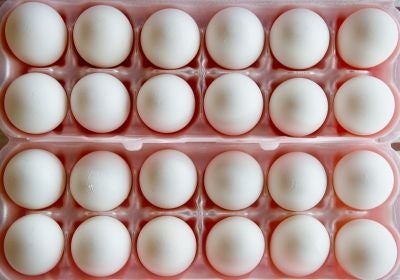Your support helps us to tell the story
From reproductive rights to climate change to Big Tech, The Independent is on the ground when the story is developing. Whether it's investigating the financials of Elon Musk's pro-Trump PAC or producing our latest documentary, 'The A Word', which shines a light on the American women fighting for reproductive rights, we know how important it is to parse out the facts from the messaging.
At such a critical moment in US history, we need reporters on the ground. Your donation allows us to keep sending journalists to speak to both sides of the story.
The Independent is trusted by Americans across the entire political spectrum. And unlike many other quality news outlets, we choose not to lock Americans out of our reporting and analysis with paywalls. We believe quality journalism should be available to everyone, paid for by those who can afford it.
Your support makes all the difference.When it comes to watching your cholesterol, is it worse to eat a McDonald's burger and fries or a single egg? Canadian researchers say put down that yolk.
According to a review published in the November issue of the Canadian Journal of Cardiology, an egg yolk is one of the worst diet offenders for people at risk for heart disease. An egg yolk can pack a whopping 215 to 275 mg of cholesterol. A Big Mac contains 75 mg of cholesterol. Fries with that? Fries contain no cholesterol at all, but 13 grams of fat for a small order, which doesn't do your heart any favors either.
If you're at risk for cardiovascular disease, or have diabetes or high "bad" cholesterol (LDL-C), doctors advise consuming less than 200 mg of cholesterol per day. Healthy people should limit dietary cholesterol intake to less than 300 mg per day.
Unlike fat, cholesterol in foods is a waxy substance also found in dairy products, meat, poultry, fish, and shellfish. Even foods relatively low in fat, such as organ meats and oysters, can pack a punch in terms of cholesterol. Fruits, vegetables, vegetable oils, grains, cereals, nuts, and seeds contain no cholesterol, so doctors advised filling up on these foods instead.
"We wanted to put cholesterol into perspective, as there's been a widespread misconception...that consumption of dietary cholesterol and egg yolks is harmless," says one of the review's authors David Spence of The University of Western Ontario. "Much of this has to do with effective egg marketing." Eggs, he said, are classed as a high-quality protein, but that's not the case if you're watching your cholesterol.
If you like eggs but don't want the extra cholesterol, simply use egg whites, which contain no cholesterol. You may also use cholesterol-free egg substitutes made with egg whites. If you want to reduce cholesterol in a recipe that calls for eggs, use two egg whites or 1/4 cup (59 milliliters) cholesterol-free egg substitute in place of one whole egg.
To access the Canadian Journal of Cardiology report: http://www.pulsus.com
Want to find out the cholesterol levels in your favorite fast food meals? http://www.fatcalories.com/

Join our commenting forum
Join thought-provoking conversations, follow other Independent readers and see their replies
Comments